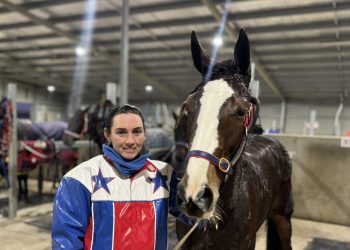All racing regulatory commissions have been put on notice that the banning of voluntary race day furosemide administrations by some US racetracks or lawmakers is expected to encourage a return to practices deemed cruel, inhumane, or potentially dangerous to the health and welfare of a horse.
Regulatory policy permitting race day furosemide was developed decades ago to end such practices and permit a treatment deemed helpful to the health of the horse. The Association of Racing Commissioners International (ARCI) has long maintained their international standard permitting such use is more considerate of the health or the horse than the standards of other organizations that disallow it.
Last Friday, the RCI advised Regulatory Commissions to be on the lookout for horses being given intravenous formaldehyde to combat potential incidents of bleeding. The advisory noted that Formaldehyde use is already being investigated in at least one US jurisdiction, and the RCI investigatory intelligence network is reporting that if furosemide is banned in the US, illegal formaldehyde use as an alternative may become common.
"This poses an inherent danger to the horse and can be potentially fatal." the advisory read, noting that Racing Victoria, which does not permit race day furosemide, has been dealing with the formaldehyde alternative for several years.
The ARCI also advised commissions that it is anticipated that some horsemen will return to a practice known as "Drawing and Muzzling". This practice, common in Europe where race day furosemide treatments are also not permitted, denies a horse food and water for twenty-four to thirty six hours prior to a race.
"The denial of water or food to a horse for an extended period of time should be regarded as cruel and inhumane by regulatory authorities," the advisory read.
The advisory suggested that any commissions considering requests to suspend current regulatory policy permitting race day furosemide treatments at racetracks or during select races are being advised to consider a corresponding prohibition on "Drawing and Muzzling".
This is the second Equine Welfare advisory circulated to commissions in recent days. On April 30th the ARCI warned commissions to be on the lookout for an herbal drug called Kratom that has been linked to almost 100 overdose deaths in humans.
Kratom is marketed as a health supplement and treatment for common maladies, but the FDA and DEA have warned against its use. Kratom has been found in racehorses in New York.
Commissions were also reminded to alert investigators that some racehorses may be given treatments of nickel to boost performance in much the same way cobalt has been used.
Rebecca Shoemaker
Assistant to the President & CEO
Association of Racing Commissioners International

 USA
USA Canada
Canada Australia
Australia New Zealand
New Zealand Europe
Europe UK / IRE
UK / IRE


